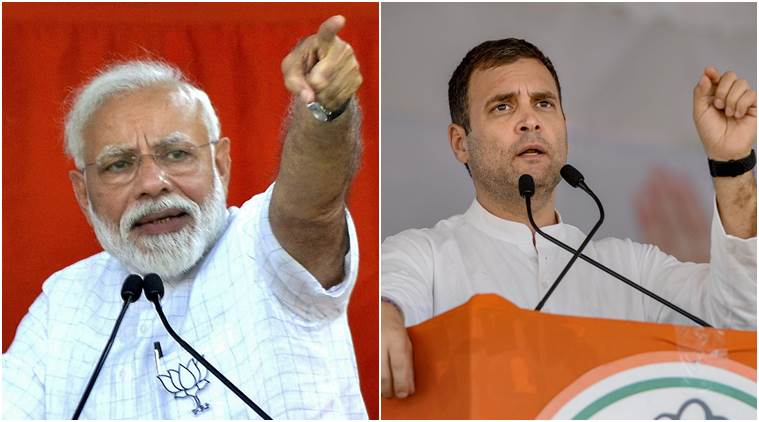
We often feel proud of our democratic system. But it also has a shortcoming, which has been magnified in the current election season. The conversation today is not about what the BJP/NDA promised in its manifesto of 2014, and how far they have been able to deliver on their promises. Accusations and counter-accusations are being hurled on who was/is more corrupt — of course, without much proof. The gloves are off and the battle for power is bayonet to bayonet. Our political system seems to have reached a new low given that political parties petitioned the Supreme Court against the Election Commission. They requested the Court to ask the EC to act against violations of the Model Code of Conduct. I hope things will return to normal after the elections are over. The real issues will haunt the government that assumes office after the elections.
In this article, we focus on the key issues that confront the food and agri-sector, including those pertaining to farmers’ incomes.
In 2014, the BJP manifesto promised to implement the Swaminathan Committee report, especially its recommendation on minimum support prices (MSPs) being 50 per cent above the costs incurred by farmers. For four years after assuming office, the party never talked about this promise. In the fifth year, the government raised MSPs to 50 per cent above costs, but the reference cost was lowered from comprehensive cost (C2) — implied in the Swaminathan formula — to Cost A2+FL (paid out costs plus family labour). Cost A2+FL is about 38 per cent lower than Cost C2. Farmers saw through the trick and felt cheated. And when market prices remained 10 to 30 per cent lower than the announced MSPs for most crops, farmers lost any hope of getting remunerative prices for their produce.
Meanwhile, the government changed the goal post to doubling farmers’ incomes by 2022-23. From whatever little I have learnt about agriculture in my professional life, I can say confidently that the government cannot even reach the halfway mark of this target by 2022-23 with the set of policies that have been followed in the last five years. It pains me that ministers, bureaucrats, and even many academics talk about this target in an uncritical manner. Either they don’t understand the challenges faced by the country in agriculture or they are simply fooling people. There is a famous saying: “You can fool all the people for some time, some people all the time, but not all the people all the time”
My humble assessment of the government’s performance is that it suffers the perils of over-promising. In the food and agri-space, the government hasn’t achieved half of what the BJP manifesto had promised. Let me cite a few more examples.
One of the major promises in the BJP’s 2014 manifesto was reforming the foodgrain management system. In fact, the manifesto explicitly talked about unbundling the Food Corporation of India (FCI). Has this promise been unfulfilled? Of course not. The ills of the grain management system remain where they were in 2013-14, with one notable change: The introduction of the POS (point of sale) machines at a large number of fair price shops.
The government claims that it has weeded out 2.75 crore fake ration cards. But then why has the PDS offtake not fallen? In fact the PDS offtake has been gradually increasing, and so has procurement. The stocks with the government have also increased. On April 1, the grain stocks were more than double the buffer stocking norms, reflecting high economic inefficiency.
The food subsidy in the 2019-20 budget is Rs 1.84 lakh crore. What is less known is that the outstanding dues of the FCI have been mounting — they are Rs 1.86 lakh crore. The FCI has been asked to borrow to keep the wheels running. The amount due from the agency has touched Rs 2.48 lakh crore. The upshot of all this is that the system pertaining to foodgrains remains as messy as it was in 2013-14 and the fiscal deficit figures in the Union Budget are murky. There has been no major overhauling of the FCI despite the sweeping reforms suggested by the Shanta Kumar Panel, which was instituted by the prime minister himself.
Take the case of public irrigation. After two successive droughts in 2014 and 2015, the government identified 99 projects that were at advanced stages of completion, and vowed to complete them by December 2019. The Long Term Irrigation Fund (LTIF) of Rs 40,000 crore was created with the NABARD to help states to complete these projects in time. But the BJP manifesto of 2019 states that so far, only 31 of these projects have been completed. Our research reveals that command area development has taken place in only six projects. In other words. farmers have received water in their fields in only six of of the 99 projects. That’s the pace of progress in drought-proofing the country.
One can go on and on to show how the achievements in most projects fall way short of the promises in the BJP’s 2014 manifesto. But my purpose here is to be not too critical, but to show the challenges in the food and agri-space. When a political party cannot deliver even half of what it promises, what would one call that? A failure? An over-promise? Or an attempt to fool people? You can pick your answer.
This problem is not just with the BJP, but also with the Congress. The party’s manifesto of 2019 promises an all-India loan waiver, Rs 72,000 per year income support to the bottom 20 per cent of population (NYAY), higher MSPs and so on.
Instead of discussing these promises — and holding the government to account — our political discourse has veered towards emotive non-economic issues of caste and religion. This weakens the foundations of the democratic system. But who cares? Elections are all about grabbing power. It is only coincidence that every party promises to serve the poor!